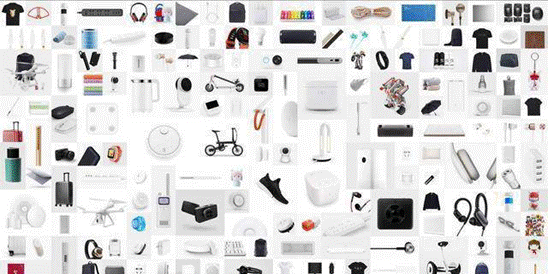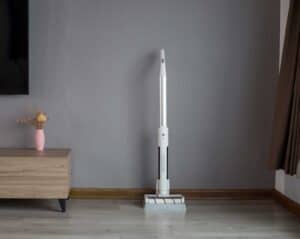Sino-US trade frictions have fermented over
time, during which, discussions from top to bottom have been made.
First of all, two lists matter as to the
trade war.
1. The 301 list, that the US will impose a
25% tariff on USD 50 billion worth of Chinese goods mainly related to Made in
China 2025. After arrival in the United States, relevant items will be charged
with a 25% tariff, as the list has been put into effect. The vacuum cleaner is
not in this list.
2. The list about USD 200 billion worth of
Chinese goods that could face 10 percent tariffs, including vacuum cleaners.
Once the list takes effect, relevant items are subject to 10% tariffs. Now it
is in public consultation phase, likely to be finalized in late September, while
10% tariffs will be imposed in early October.
Specifically, you may refer to this
article.
With largest markets in North America, the
vacuum cleaner industry will see profound impact exerted by this tariff.
Let’s first take a look at several top
brands in the North American market:
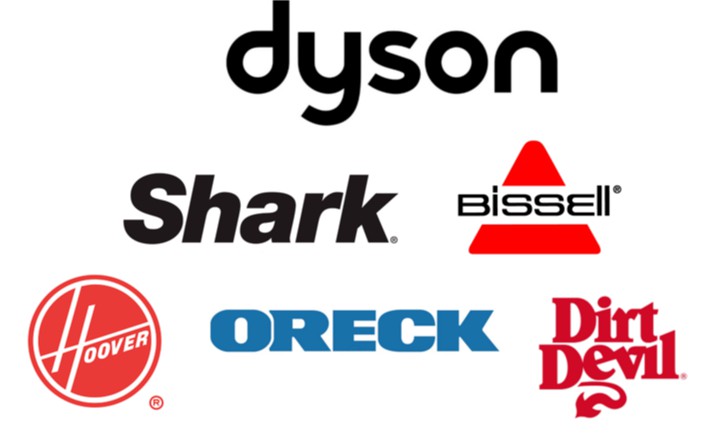
Dyson, Shark, Bissell, TTI: Hoover, Oreck,
Dirt Devil
These giants have basically occupied more
than 90% of the North American market. Someone may argue it makes no difference
to impose 10% or higher tariffs on all of them, because the relevant costs will
be transferred to American consumers and when people can no more bear, the
Trump administration may cancel the tariffs.
It is not so simple.
This is a typical prisoner game dilemma.
When the cost rises, players choose to increase the price or not. To increase,
the rising costs will be covered, but once the rivals maintain the price, a
decline in sales is possible.
The simple table below show that if all
parties raise prices, they all gain 3; if only one side does, it will see a
decline in market share and gain nothing, while others gain 5; if no one does,
everyone gains 1 as the market share remains the same while costs rise.

It is clear that holding down the price is
the best option for players. If brand owners do so, domestic manufacturers will
inevitably bear this part of costs.
It is predictable that once tariffs are
imposed, the top vacuum cleaner runners in China will face markup request of
clients.
Merely price adjustment is not a big deal
for the vacuum cleaner industry. After all, companies go through yearly exchange
rate fluctuations.
What matters is that industry center may
shift to Southeast Asia owing to the trade war.
You may take it as cry of “Wolf”, which is
seen enough of.
For the vacuum cleaner industry, the
biggest variable in the trade war is Dyson.
In recent years, Dyson has expanded rapidly
in the world by virtue of its new cordless products and also outshone others in
North American high-end sector. In 2017, its global sales increased 40% to an
astonishing USD 4.8 billion (SharkNinja of USD 1.4 billion, Bissell of probably
USD 1 billion and TTI vacuum cleaner business of USD 927 million).
More importantly, Dyson is free from the
tariff influence in its US sales with production based in Singapore and
Malaysia.
After Dyson launched its latest V10 in
2018, it immediately lowered the retail price of the old V8 and V7 by RMB 1000,
bringing a torment to its rivals. What if Dyson continues cutting prices in
pursuit of a bigger market share in North American in advantage of this tariff?
As such, the combination of its price cut
and 10% tariff is to afflict other brands.
Take TTI’s 2017 annual report for example
(more or less for other major players). The chart below displays TTI’s gross
profit of 36.7% and net profit 7.8%. Dyson’s price cut together with tariff
increases means an overwhelming burden.
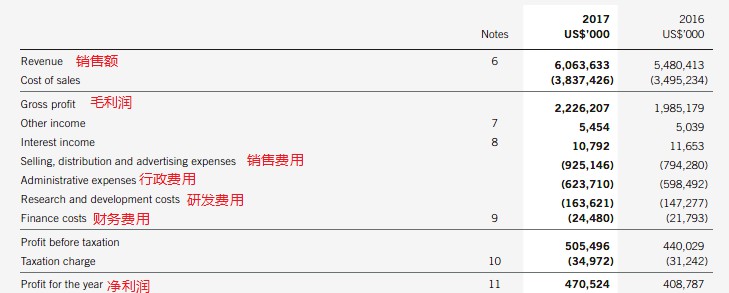
What if the US pose 20% or more tariffs
instead of 10%?
Samsung, LG and other Korean companies have
established their own factories in Vietnam. Even though Dyson maintains prices
for a consistent high-end image, you can’t say for sure Samsung, LG will not
cut prices to grab market shares.
Given the uncertainty of the American
policies, it is not wise for clients with annual sales of nearly USD 1 billion
to put all eggs in one basket. Once trade friction continues, their market
share may drop heavily.
Southeast Asia used to impress people with
incomplete infrastructure, passive workforce and immature supply chain. But it
is another case for the vacuum cleaner industry:
Vietnam:
Samsung, LG and other Korean companies have
set production lines in Vietnam in early times with management style similar to
Korean businesses. At present, Samsung and LG vacuum cleaners are mostly made
in Vietnam.
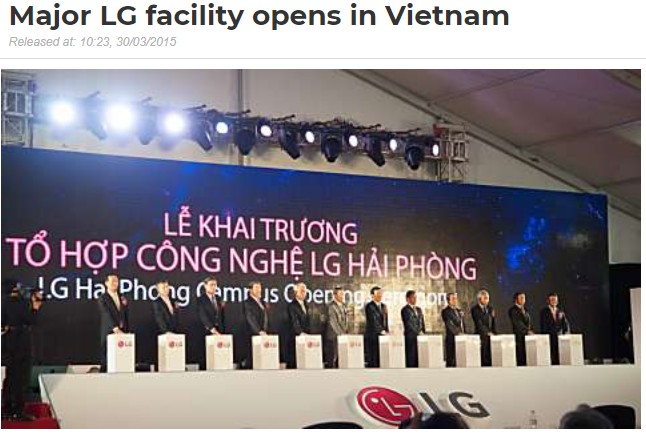

Malaysia and Singapore:
Dyson’s major production is based in
Singapore and Malaysia, primarily following factories:
1. ATA INDUSTRIAL (M) SDN. BHD. The
Singapore-based company with 2017 turnover of approximately RMB 2.7 billion
mainly offers Dyson cordless hand-held vacuum cleaners and leafless fans.
2. Meiban Group Pte Ltd., a Singapore-based
manufacturer, has made Dyson washing machines since 2004. Now it also makes
digital motors for Dyson in Singapore.
Main Dyson OEM products: cordless hand-held
vacuum cleaner, leafless fan and digital motor.
3. VS Industry Bhd, Senai, Malaysia, an EMS
factory that ranked 27th in EMS (Electronic Manufacturing Services) industry,
with a turnover of MYR 3.281 billion in 2017, or about RMB 5.14 billion.
Mainly offer Dyson OEM cordless handheld
vacuum cleaner.
4. SKP Resources Bhd., a factory in
Malaysia, has cooperated with Dyson since 2002. Its 2017 turnover of RMB 3
billion or so was half contributed by Dyson.
It mainly offers Dyson OEM products: cordless
hand-held vacuum cleaner and hair dryer.
5. Flex — Singapore. Flextronics with 2017 turnover
of USD 24.418 billion ranked third in EMS (Electronic Manufacturing Services),
second only to Hon Hai/Foxconn and Pegatron Corporation.
It mainly offers Dyson OEM products: cord vacuum
cleaner and Dyson 360 eyes robot. Flextronics also undertakes Bissell’s vacuum
cleaner OEM.
6. New Kinpo Group based in Taiwan ranked
8th in the global EMS in 2015. It built several factories in the Philippines specially
to produce Dyson vacuum cleaners.
It mainly offers Dyson OEM products: cordless
hand-held vacuum cleaner, hair dryer and digital motor.
As can be seen from the above list, supply
chain and workers’ professional quality are no barrier for vacuum making in
Malaysia and Singapore.
In particular, Flex has already made
products for Bissell in Shenzhen. Once needed, it is quick to set up a new
factory.
Several obstacles are seen in the
industrial transfer:
1. It is said that Dyson has an exclusive
agreement with the suppliers requiring them to only make Dyson products. This disables
direct use of existing suppliers, except building new factories, so it will
take some time.
2. Dyson enjoys high profit margin, allowing
relatively high benefits for factories. The mature supply chain in China necessitates
small gains through all supply chain ends. Cost increase in this part may
offset the tariff increase.
All in all, the trade war may bring the
vacuum cleaner industry following changes:
1. Once 10% tariff is applied as to the
list of goods worth USD 200 billion, North American clients may ask for price
cuts and take risks together.
2. The Southeast Asian industrial chain has
grown mature, likely to partly take over high-margin product transfer.
3. Due to the uncertainty of American
policies, major clients may transfer part of businesses to Southeast Asia to
spread risks.
4. Now vacuum cleaner OEMs in Southeast
Asia are mainly undertaken by companies based in South Korea and Singapore.
Once major clients transfer orders, will domestic OEM giants follow suit to
build factories in Southeast Asia?
All these are private views. Welcome your
comments.



